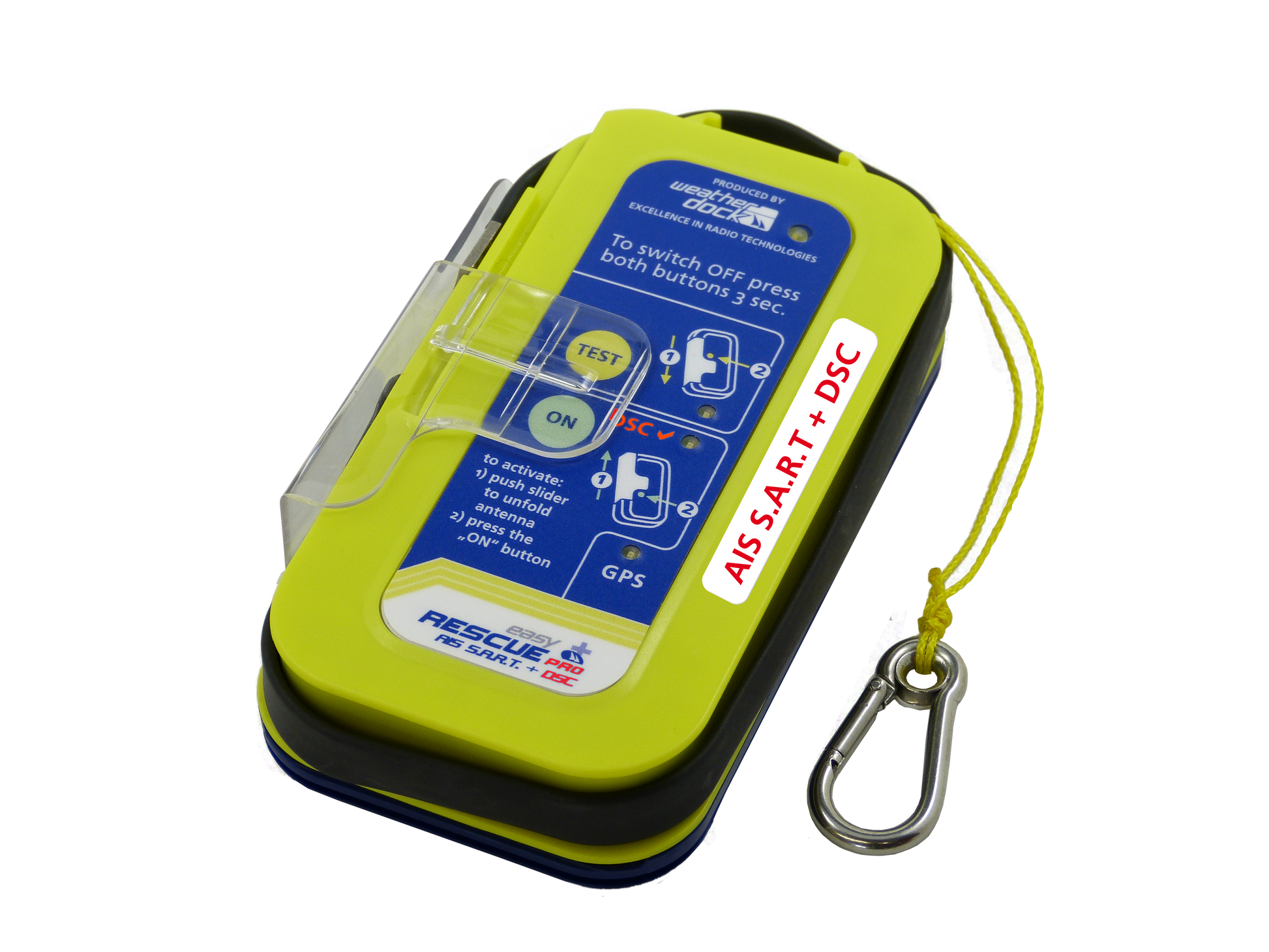
EasyRescue AIS SART - IMO/SOLAS
Reliable shipping
Flexible returns
Reddingsvlotten of combinaties kunnen levertijd hebben van +/- 1 week
EasyRescue AIS SART – Sea rescue transmitter
The EasyRescue AIS SART is a portable emergency transmitter that uses AIS (Automatic Identification System) technology to quickly and accurately locate a drowning person. Once the transmitter is activated, it determines its position based on GPS and sends out a distress signal via AIS within 30 to 120 seconds.
How does it work?
- After activation, the GPS position is determined.
- Then AIS distress messages are sent: 8 messages within the first 16 seconds of every minute.
- This protocol ensures maximum visibility (signal falls on a wave crest).
- Signals are transmitted on AIS channels 87 & 88 (161.975 MHz and 162.025 MHz).
DSC Distress Calls – Direct Communication with Nearby Vessels
In addition to AIS, the EasyRescue Pro and Pro3 also have a DSC class D controller (Digital Selective Calling). This system sends a digital distress call to the mother ship and up to 7 other pre-set ships via the marine radio. As soon as the device is activated, it sends an individual DSC call to these ships within 5 seconds, including GPS position. If no response is received, the following automatically follows:
- After ±5 seconds: first call directly to mother ship(s) to raise the alarm on board.
- After ±1 minute: second call with current GPS position
- After 5 minutes: third call
- After 10 minutes: an “All Ships Call”, which alerts all ships in the area with DSC
- As soon as a ship acknowledges the distress call, the EasyRescue indicates this by flashing a light and beeping. After that, only the DSC part stops transmitting; the AIS distress transmission remains active as long as the device is switched on.
Key Features
- Range: Minimum 8 miles (ships), up to 120 miles when received by aircraft or helicopters.
-
Broadcasting time: Minimum 96 hours at -20°C, up to 6–8 days at normal temperatures.
- Also works in busy AIS areas (such as Rotterdam), thanks to the SOTDMA protocol (class A, guaranteed signal priority).
- Floating and waterproof (IP68) up to 20 meters depth.
- Equipped with bright LED flash for visibility in the dark.
- Compact and lightweight design, with self-erecting antenna.
- No permit required, but SOLAS/IMO certified.
Usage and activation
- Manual or automatic, depending on the model.
- Can be easily attached to or in a life jacket.
- Some models activate upon contact with water (after 2 seconds of immersion).
- An activation button with break protection prevents accidental use.
Visibility & Compatibility
- Visible as “AIS SART Active” on any AIS compatible chartplotter or PC.
- Recognized by professional rescue services and commercial shipping worldwide.
- Received messages contain GPS position and distress signal.
Models and applications
- A040 - Manual activation, long antenna.
- A049 - Automatic activation via water, short antenna. Compact, suitable for breast pocket or arm bag.
- BW-COM - Magnet and water activation. Specially for integrated life jackets.
- Pro - BW-COM + DSC class D controller. Calls mothership + 7 other ships.
- Pro3 - Pro + additional 121.5 MHz transmitter for radio direction finding (as with EPIRB).
Technical data (summarized)
- Dimensions: approx. 128 × 76 × 32 mm, weight 350 g.
- Water resistance: up to 20 m depth.
- Operating temperature: -20 °C to +55 °C.
- Battery life: 8 years, 96 hours of transmission at -20 °C.
- Drop test: 1 m on hard surface, 30 m in water.
-
Approvals: BSH, FCC, SOLAS, IMO, CE (0700), EN/IEC standards .
- Antennas: fixed (short) or automatically extending (long, 45 cm).
EasyRescue Inside:
Specially developed life jackets with built-in EasyRescue, available in ISO and SOLAS versions.


